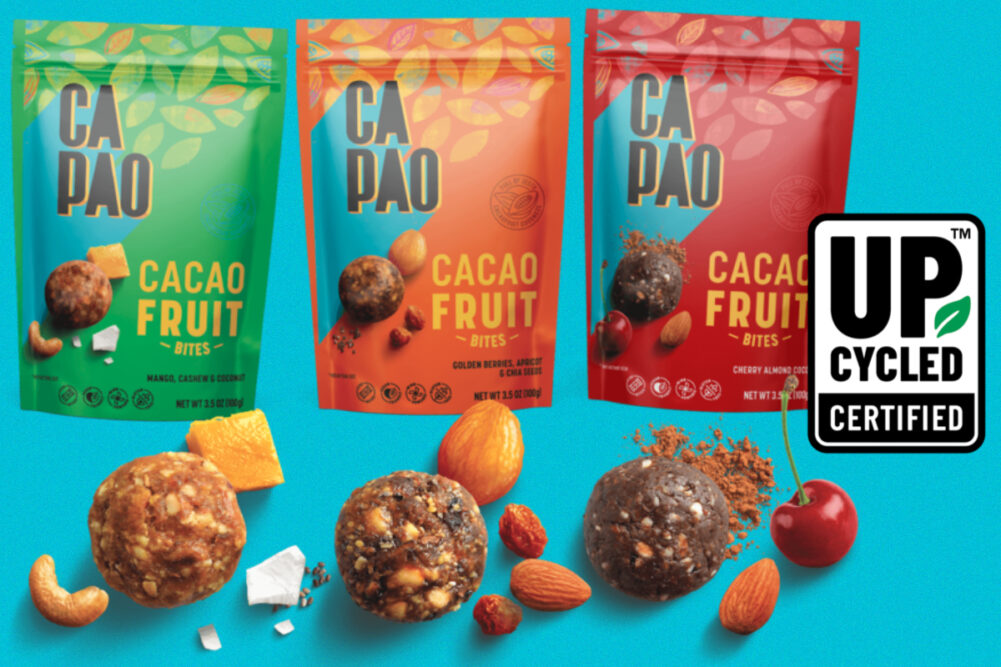CHICAGO — CaPao, a snack brand created by Mondelez International’s SnackFutures innovation and venture hub, has been certified under the Upcycled Food Association’s Upcycled Certification Program. CaPao Cacaofruit Bites are formulated with parts of the cacaofruit that traditionally are discarded after cocoa beans are extracted for chocolate production.
The upcycled certification mark was introduced in April to provide consumers with clear guidance about the presence of upcycled food ingredients in a range of products, including food and beverages, pet food, dietary supplements and more. CaPao is one of the first products to receive the certification, meeting the criteria as a product made with ingredients that otherwise would not have been used for human consumption, are sourced and produced using verifiable supply chains and have a positive impact on the planet, according to the company. Available in select locations through Southern California and online at capaofruit.com, varieties include cherry almond cocoa, mango cashew coconut, and golden berry apricot chia.
“CaPao was built on the promise of being good for people and kind to the planet by upcycling and snackifying cacaofruit that would otherwise have gone to waste,” said Shannon Neumann, associate director of SnackFutures Innovation. “This certification not only validates the relevance and integrity of our brand, but it also allows us to ‘mainstream’ upcycling by delivering those ingredients in a delicious snack and underscoring the impact people can have simply by making a mindful choice.”
SnackFutures, which joined the Upcycled Food Association in May, also developed Dirt Kitchen Snacks, a line of air-dried crisps made from vegetables that normally become on-farm waste due to surplus, ripeness or bruising.
“This program can help brands and companies mitigate food waste with a consumer-driven, actionable, scalable solution,” said Turner Wyatt, co-founder and chief executive officer of Upcycled Food Association. “Cutting food waste is the single-most effective thing people can do to address climate change, and this set of clear, uniform standards and protocols is an important step in making this the norm.”





